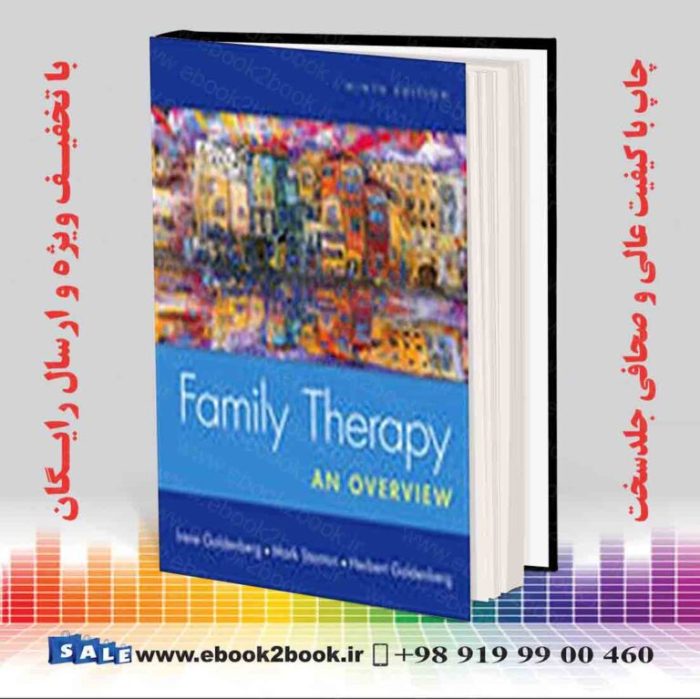Family therapy an overview 9th edition pdf – Family Therapy: An Overview (9th Edition) embarks on an insightful journey into the multifaceted realm of family therapy, offering a comprehensive exploration of its principles, practices, and ethical considerations. This seminal work delves into the intricacies of family dynamics, providing invaluable insights for practitioners, researchers, and individuals seeking to navigate the complexities of family relationships.
The content of the second paragraph that provides descriptive and clear information about the topic.
Overview of Family Therapy
Family therapy is a type of psychotherapy that focuses on the family as a system and aims to improve the relationships and functioning of its members. It is based on the premise that problems within a family can be understood and addressed by considering the interactions and dynamics between family members.
The principles of family therapy include:
- The family is a system, and changes in one member affect all other members.
- The family has its own unique culture, values, and beliefs.
- The family is a source of support and strength for its members.
- The family can be a source of stress and conflict for its members.
- Family therapy can help families to improve their communication, problem-solving, and conflict resolution skills.
There are different types of family therapy approaches, each with its own unique focus and techniques. Some of the most common approaches include:
- Structural family therapy
- Strategic family therapy
- Narrative family therapy
- Cognitive-behavioral family therapy
- Psychodynamic family therapy
Theoretical Foundations of Family Therapy: Family Therapy An Overview 9th Edition Pdf
Family therapy is informed by a variety of theoretical perspectives, including:
Systems Theory
Systems theory views the family as a system, in which the behavior of each member is influenced by the behavior of the other members. This theory emphasizes the importance of communication, feedback loops, and homeostasis in family functioning.
Communication Theory
Communication theory focuses on the ways in which family members communicate with each other. This theory emphasizes the importance of verbal and nonverbal communication, as well as the role of communication patterns in family dynamics.
Attachment Theory
Attachment theory focuses on the ways in which family members form attachments to each other. This theory emphasizes the importance of secure attachments in child development and family functioning.
Assessment and Diagnosis in Family Therapy
The assessment process in family therapy typically involves:
- Intake procedures, such as gathering information about the family’s history, presenting problems, and goals for therapy.
- Data collection methods, such as interviews, observations, and questionnaires.
- Diagnostic criteria, such as the Diagnostic and Statistical Manual of Mental Disorders (DSM-5).
The role of family assessment in treatment planning is to identify the family’s strengths and weaknesses, as well as the factors that are contributing to the family’s problems. This information is then used to develop a treatment plan that is tailored to the specific needs of the family.
Treatment Interventions in Family Therapy
The core treatment interventions used in family therapy include:
Communication Training, Family therapy an overview 9th edition pdf
Communication training helps family members to improve their communication skills, such as active listening, empathy, and assertiveness.
Problem-Solving
Problem-solving helps family members to identify and solve problems in a constructive way.
Emotional Regulation Techniques
Emotional regulation techniques help family members to manage their emotions in a healthy way.
Ethical Considerations in Family Therapy

The ethical principles that guide family therapy practice include:
- Confidentiality
- Informed consent
- Dual relationships
Family therapists must be aware of the ethical challenges that can arise in family therapy and have strategies for addressing these challenges.
Research in Family Therapy
The current state of research in family therapy is promising. There is a growing body of evidence that supports the effectiveness of family therapy for a variety of problems, including:
- Mental health disorders
- Substance abuse
- Relationship problems
- Child behavior problems
Evidence-based practice is an important part of family therapy. Family therapists should use research findings to inform their practice and to ensure that they are providing the most effective treatment possible.
Applications of Family Therapy
Family therapy is applied in a variety of settings, including:
- Mental health clinics
- Schools
- Community agencies
Family therapy can be adapted to meet the specific needs of different populations, such as:
- Families with children
- Families with adolescents
- Families with elderly members
- Families from different cultures
FAQ Overview
What is the primary focus of family therapy?
Family therapy prioritizes the family system as a whole, recognizing the interconnectedness of family members and their influence on each other’s well-being.
How does family therapy differ from individual therapy?
Unlike individual therapy, family therapy involves multiple family members in the therapeutic process, facilitating communication, problem-solving, and the exploration of relationship dynamics.
What are some common ethical considerations in family therapy?
Confidentiality, informed consent, and dual relationships are among the key ethical principles that guide family therapy practice, ensuring the protection and well-being of all participants.